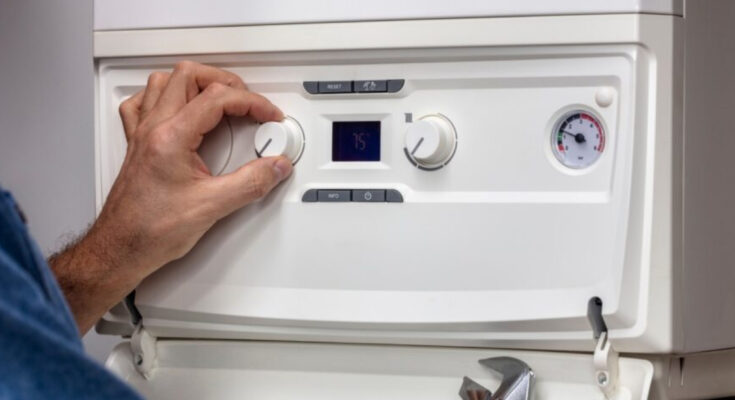Smart plumbing technology has entered the world of plumbing, representing a remarkable leap forward in modern home infrastructure.
This new technology allows users to do a number of things, such as remotely turn on your home’s water supply, or have it switch on or off automatically.
Join us as we jump into the ins and outs of smart plumbing technology and why you should integrate it into your home.
Defining Smart Plumbing Technology
Innovative plumbing technology, often a subset of the broader “smart home” concept, applies advanced digital and connectivity solutions to manage and optimise various aspects of a home’s plumbing system.
These systems include leak detection, automated shut-off valves, and water usage monitoring, often controlled through smartphone apps or integrated home automation platforms.
All of these are features that plumbing companies pride themselves on. An example of this is BPS Plumbing and Heating, a local plumbing company in Essex which is happy to help you integrate smart plumbing into your home.
The Evolution of Plumbing and the Need for Innovation
Plumbing has come a long way from its origins in ancient civilisations, marked by simple aqueducts and drainage systems. Today, innovation in plumbing is necessary to meet the demands of modern living.
Rapid urbanisation, increased water scarcity, and environmental consciousness have all driven the need for more efficient and sustainable plumbing solutions.
Types of Smart Plumbing Systems
Smart plumbing systems are revolutionising how we manage and conserve water in our homes. Let’s delve into the diverse range of smart plumbing technologies available.
Smart Water Heaters
Smart water heaters are designed to optimise energy usage and improve the overall efficiency of your home’s hot water supply. They often come with features like:
- Remote Control – Users can adjust water temperature and operating schedules via smartphone apps, ensuring hot water is ready when needed.
- Energy Monitoring – Some models track energy consumption, providing insights for more efficient water heating.
- Leak Detection – Advanced units can detect leaks and shut off the water supply to prevent damage.
Leak Detection Systems
Smart leak detection systems are robust in safeguarding your home from water damage. They often include:
- Sensors – These can be placed near appliances, pipes, or areas prone to leaks. They detect even small leaks and send alerts to homeowners.
- Automatic Shut-off Valves – Some systems can work with shut-off valves to stop water flow when a leak is detected.
- App Integration – Many leak detection systems connect to mobile apps, allowing homeowners to remotely monitor their property’s water integrity.
IoT-Based Faucets and Fixtures
IoT-based faucets and fixtures enhance convenience and water efficiency in the home. These fixtures may include:
- Touchless Operation – Faucets with motion sensors reduce water wastage.
- Water-Conserving Features – IoT fixtures can control water flow to minimise usage.
- Connectivity – Integration with smart home systems allows homeowners to manage institutions remotely.
Installation and Setup: How to Integrate Smart Plumbing
Installing smart plumbing technology in your Essex home can bring convenience, efficiency, and even cost savings.
Getting Started with Smart Plumbing Technology
Before diving into the world of smart plumbing, assessing your specific needs is essential. What are your pain points or areas where you’d like to enhance efficiency?
Perhaps you want to monitor water usage, prevent leaks, or automate specific tasks like irrigation. By identifying your needs, you can select the right smart devices to address them.
A Step-by-Step Installation Guide
Choosing the appropriate smart plumbing products is crucial.
These could include smart water metres, leak detectors, water purification systems, or even automated irrigation controllers. Consider factors like compatibility with your existing plumbing and smart home ecosystem, the reliability of the product, and its features.
Hiring a Professional or DIY Installation
Once you’ve chosen your smart plumbing devices, it’s time to decide whether you want to install them yourself or hire a professional. DIY installations are often feasible for tech-savvy homeowners, while complex setups might require a licensed plumber or smart home technician.
Maintenance and Troubleshooting for Smart Plumbing Systems
Smart plumbing systems, which integrate technology into your home’s water supply and management, bring a new level of convenience and control. Several maintenance practices are crucial to ensure these systems continue to function correctly.
Regularly Check for Leaks and Drips
Smart plumbing systems can detect leaks but may not identify minor drips or slow leaks. Periodically inspect your faucets, pipes, and fixtures for any signs of leakage.
Clean Sensors and Filters
Smart plumbing systems often contain sensors to monitor water usage and quality. Regularly clean these sensors and the system’s filters to ensure accurate data collection and system operation.
Update System Software
Just like any other technology, smart plumbing systems may receive software updates. These updates can include bug fixes, improved features, and enhanced security. Keeping your system’s software up-to-date is essential.
Inspect for Corrosion
Check for any signs of corrosion in your plumbing system, especially in areas with hard water. Corrosion can damage pipes and fixtures and affect water quality.
Service the Water Heater
If your smart plumbing system includes a water heater, consider regular maintenance or servicing, especially if you notice water temperature or quality changes.
Importance of Regular Check-Ups and Servicing
While homeowners in Essex can perform some maintenance and troubleshooting tasks, scheduling regular check-ups and servicing with a professional plumber specialising in smart plumbing systems is essential.
Professional Assessment
A plumber experienced with smart plumbing systems can conduct a comprehensive assessment to identify potential issues and ensure the system’s proper function.
Software Updates
Professionals can manage software updates and ensure your system has the latest features and security patches.
Repair and Replacement
If your system experiences significant issues, professional plumbers can perform repairs or recommend replacements as needed.
Conclusion
Smart plumbing isn’t just about fixing leaks; it’s a futuristic world of convenience.
From controlling your water heater with your phone to stopping sneaky drips, it’s a home upgrade worth considering. But remember, even the smartest systems need a little tender loving care.
Regular checks and pro servicing keep your water world flowing smoothly. So, dive into the future of plumbing and make a splash without the soggy surprises!




